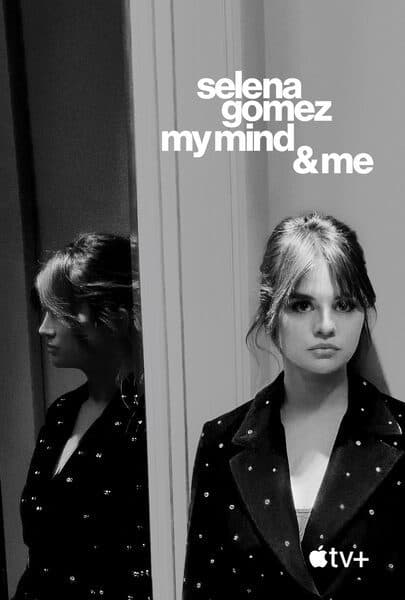Culture Pick: Selena Gomez’s documentary sheds light on mental illness struggles
November 13, 2022
Celebrity-released documentaries have become trendy over the past few years, with the likes of 2019’s “Miss Americana,” which follows Taylor Swift, and Billie Eilish’s 2021 “The World’s a Little Blurry.” Documentaries provide fans with insight into the lives of their favorite celebrities and create a better understanding of who they are as people, past their celebrity persona. Selena Gomez, a popstar and actress, took that purpose and stretched it tenfold by stripping down her walls and exposing her most vulnerable self to the world in her Apple TV documentary, “My Mind & Me,” which came out on Nov. 2.
Gomez centers the film around the past six years of her life and the baggage she carried during that time as she wrestled with bipolar disorder, her Lupus diagnosis and abuse received from the media.
It begins in 2016 with the singer on her “Revival World Tour” which only lasted for 55 shows before the remainder was cancelled due to Gomez’s mental exhaustion. In between shots, dark visuals dance across the screen as Gomez reads excerpts from her diary at the time, admitting to drowning in her quickly depleting mental health. Eventually, Gomez disappeared from the spotlight during her admittance into a psychiatric care facility.
A storyline that has followed the former Disney star throughout her career was her on-again, off-again relationship with singer Justin Bieber. The documentary shows just how much that affected Gomez, with a very candid breakdown of the singer asking, “Why can’t I ever be good enough on my own?”
While the media speculated that she checked into the rehab center because of an emotional breakdown due to Bieber’s engagement with Hailey Baldwin, the reality was that Gomez was diagnosed with bipolar disorder and was struggling to stay alive.
“Everything was so public,” Gomez said in the documentary. “I felt haunted by a past relationship that no one wanted to let go of.”
Despite the media hardships with the gossip and speculations, Gomez flourished from heartache. She sorted through her feelings in the only way she knew how: she wrote a song. In 2019, “Lose You to Love Me” became Gomez’s first number one song on the Billboard Hot 100.
“It’s about more than a lost love. It’s me learning to choose myself, to choose life … about knowing that you completely lost every part of who you are just to rediscover yourself again,” Gomez said.
Even though it was “the worst possible heartbreak,” Gomez said that it was “ultimately the best thing that ever happened to [her].”
Not only does the film dive into Gomez’s fight with her mental illness, but it also celebrates the strengths of others who have had similar struggles. The film illustrates Gomez’s path to becoming the outspoken advocate that she is today.
In one of the more touching scenes, at a mental health awareness event in 2019, a fan confides to Gomez that it is the anniversary of her attempt to take her own life, and that Gomez and her words have been a beacon for her to keep pushing on. The interaction is authentic, ending with the singer sweeping the young woman into a long, tearful embrace.
Gomez told Rolling Stone that moments like that are why she decided to release her documentary.
“If I can just do that for one person, imagine what it could do,” Gomez said.
Along with the film, Gomez released a single of the same name. The song sticks to the theme of Gomez’s transparency with her mental health, admitting that she tried to sweep it under the rug for most of her life by “hiding in the glory.”
She illustrates a tug-of-war match between herself and her mind, singing “My mind and me, we don’t get along sometimes.” Gomez ultimately comes to the realization that pulling back the curtain of perfection that surrounds her celebrity persona could help those who look up to her, those who are also experiencing darkness. She sings, “if somebody sees me like this then they won’t feel alone,” further creating the self-awareness that is prevalent throughout her film.
“‘My Mind and Me’ is a little sad,” she told Rolling Stone, “but it’s also a really nice way of putting a button on the documentary part of life, and then it’ll just be fun stories of me living my life and going on dates and having conversations with myself.”
The film also dives into other aspects of the actress’ life, such as her diagnosis of the autoimmune disease Lupus, and her passion for philanthropy.
According to Gomez, being able to talk to others about “real things” helped pull herself out of her own head. She began the Rare Impact Fund with the goal to raise money to begin mental health curriculum in schools across the United States, while also combatting the stigma against mental health.
While she felt like she was “sacrificing herself for a greater good,” her voice is loud with truth behind a necessary conversation about mental health. With 50% of American adults suffering from a mental illness and 2.8% having bipolar disorder, that sacrifice will not be in vain.
In the documentary, Gomez is asked by an interviewer what her ultimate dream is. She does not mention winning awards or starring in critically acclaimed movies, but rather says, “My biggest hope is to save as many lives as possible in any way that I can.”
Gomez’s transparency with her struggles is a stand-out in a rather “don’t ask, don’t tell” industry. The cameras do not stop for anything; tears, breakdowns, arguments or depressive episodes. The documentary’s director, Alek Keshishian, was told by Gomez to “film it all.”
“I was in her home, and she would be in tears,” Keshishian said to Rolling Stone. “I am holding my iPhone, and I’m like, ‘I don’t know whether I should shoot this.’ And she was like, ‘No, I want you to shoot this.’”
It shows Gomez in a light that most celebrities would shy away from and provides one of the rawest portrayals of mental illness that one could watch.
“I just constantly remind myself that there’s a reason I’m here,” Gomez said.
And if it is being a voice to those who live in fear of their own minds, who felt alone in their struggle, then Selena Gomez has found her reason.











